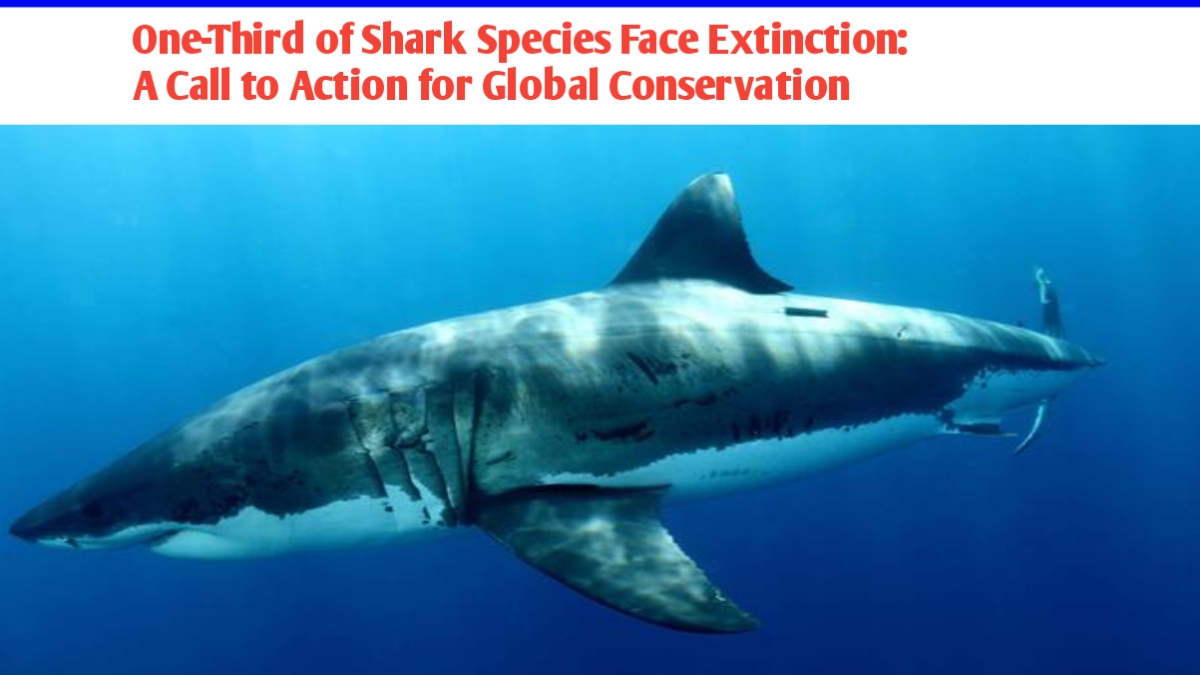One-Third of Shark Species Face Extinction: A Call to Action for Global Conservation
The Looming Crisis in Shark Populations
Sharks, the apex predators of the ocean, are facing an unprecedented crisis. Recent studies reveal that one-third of shark species are threatened with extinction, a situation that demands urgent global attention and concerted conservation efforts. The decline of these vital marine creatures could have far-reaching consequences for ocean ecosystems and biodiversity.
The Findings: A Grim Reality
The International Union for Conservation of Nature (IUCN) has updated its Red List of Threatened Species, highlighting that 33% of shark species are now at risk of extinction. This alarming statistic includes iconic species such as the Great White Shark, the Hammerhead Shark, and the Whale Shark.
The primary drivers of this decline are overfishing, habitat loss, and climate change, which collectively threaten the survival of these essential marine predators.
Overfishing and Bycatch: Major Threats
One of the leading causes of the decline in shark populations is overfishing. Sharks are often targeted for their fins, meat, and oil. Shark finning, in particular, is a devastating practice where sharks are caught, their fins are removed, and they are often discarded back into the ocean alive, where they die from suffocation or predation.
Reading more… Dua Lipa: Redefining Pop Music – A Journey to Global Stardom
Additionally, bycatch – the unintentional capture of sharks in fishing gear intended for other species – significantly contributes to their population decline.
Habitat Loss and Degradation
Habitat loss and degradation also play a crucial role in the endangerment of shark species. Coastal development, pollution, and destructive fishing practices have led to the degradation of crucial shark habitats such as coral reefs, mangroves, and seagrass beds. These habitats are essential for the breeding, feeding, and growth of many shark species.
Climate Change: An Emerging Threat
Climate change poses an emerging and significant threat to shark populations. Rising ocean temperatures, ocean acidification, and changing ocean currents affect sharks’ distribution, reproduction, and prey availability. For instance, warming waters can disrupt shark migratory patterns, leading them into areas where they are more vulnerable to fishing or where their prey is less abundant.
The Ecological Importance of Sharks
Sharks play a vital role in maintaining the health of marine ecosystems. As apex predators, they help regulate the populations of other marine species, ensuring a balanced and diverse ecosystem. The decline of shark populations can lead to the overpopulation of certain species, which can have cascading effects on the entire marine food web.
Conservation Efforts: A Call to Action
Addressing the crisis facing shark populations requires a multifaceted approach. International cooperation and stringent regulations are essential to curb overfishing and illegal shark finning.
Establishing marine protected areas (MPAs) can provide safe havens for sharks and help preserve critical habitats. Moreover, promoting sustainable fishing practices and reducing bycatch are crucial steps in protecting these species.
Public awareness and education are also vital components of shark conservation. Increasing public understanding of the importance of sharks to marine ecosystems and the threats they face can drive consumer behavior changes and support for conservation initiatives.
Advocacy and support for policies that protect sharks at national and international levels are necessary to ensure their survival.
Conclusion
The revelation that one-third of shark species are threatened with extinction is a stark reminder of the urgent need for global conservation efforts. Protecting sharks is not only about preserving these majestic creatures but also about maintaining the health and balance of our oceans.
As apex predators, sharks are integral to marine ecosystems, and their decline could have profound and lasting impacts. It is imperative that we take immediate and decisive action to safeguard the future of shark populations and the marine environments they inhabit.
How did you like the information given in our article today, please tell us in the comment section and for more such posts, follow our page The News House, thank you

